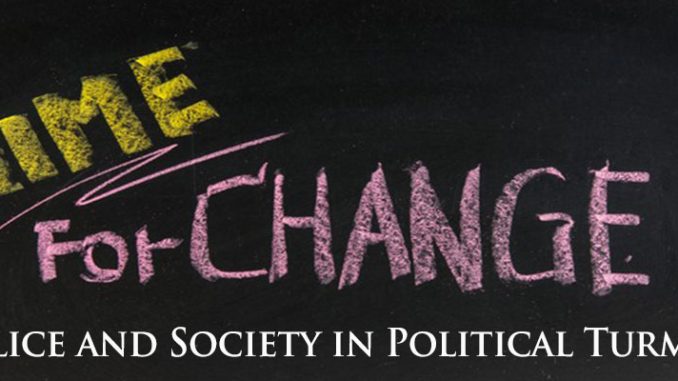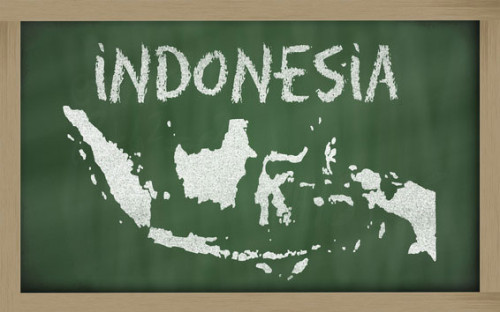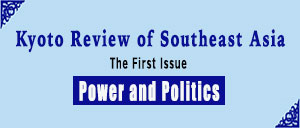
The dramatic arrest of Tommy Soeharto is the latest event to rock the political scene. The current cases, which link the police with Indonesia’s political turmoil, bring to mind the work of a famous British historian, Richard Cobbs. He discussed the role of the police in France during the political turmoil associated with the French Revolution and the succeeding changes in political regime from 1789 to 1870. Our experience in Indonesia with a series of political crises and quick regime changes lends Richard Cobbs’ work, The Police and the People, continuing relevance.
The modern police institution, whether in France or Indonesia, is an instrument of state, regardless of who happens to hold state power. This is illustrated by the experience of France in the Second World War (1940-45), when occupied by Germany, and Indonesia in the same period, occupied by Japan (1942-45). The institution of the police, like other civilian bureaucracies and military and civilian intelligence services, must obey the authority of the state that exists and carry out its duties as determined by the new power holders. In short, the police institution remains distinct and neutral as a tool of the state, regardless of how the regime comes to power.
Nevertheless, it must be stressed that the police institution is a bureaucratic entity that depends on routine in its work. For example, the police always maintain lists of suspicious elements in society—though we hope these operate only as presupposition—like long-haired youths as potential drug users and dealers, or men with tatoos having a tendency to criminal behavior. These lists also refer to specific areas—in Jakarta, Kampung Bali is a district well-known for gangsters, Kota for gambling, Tamanlawang for transvestism, Cawang UKI or Senen for crime. Furthermore, people from certain ethnicities find themselves on the police black list—theMadurese and Carok for becoming easily incensed and wielding machetes, or the Ponorogo for thewarok problem.
The question is how the police, as a bureaucratic institution, respond to current political changes, especially the dismissal of President Soeharto, which led to the case of Tommy Soeharto. In this connection, I am of the opinion that the current political turmoil influenced police performance by creating disorder, even “revolution,” in the black list which usually constitutes the primary reference for police operations.
When Soeharto fell, the police had to take on the problem of Tommy Soeharto, making him a fugitive. This would have been unimaginable in the past. And the case of Tommy, in turn, transformed the police black list—areas targeted for surveillance were no longer the red light zones of Kampung Bali or Senen, but the elite residential areas of Jakarta. The police even had to watch the “presidential district” of Jalan Cendana (Menteng), where Tommy was suspected of hiding. It was the same for other elite areas, such as Kebayoran and Bintaro, and included apartment buildings and luxurious shopping malls like Plaza Senayan and Sogo. No more Pasar Senen or Cawang.
The most difficult task was the surveillance of social circles close to Tommy Soeharto while he was a fugitive, such as senior officers of the military (and of the police as well), film stars, celebrities, and models. These are people who usually escape police notice or suspicion, except when in need of protection.
In this context, it becomes crucial for us to understand the way the institution of the police and other intelligence services work. How do the police respond to political turmoil in society, such as accompanied the fall Sukarno and Soeharto or the dissolution and banning of the PKI [Indonesian Communist Party] in 1965/66? I think this problem is relevant not only for political history, but also for social history, which in turn influences the history of the police and their relationship with society.
Modern police institutions tend to have a hard time adapting to change because of their bureaucratic reluctance to alter the black list—and the Indonesian bureaucracy is especially well-known for its rigidity. This means it is difficult, almost unthinkable, for the bureaucracy to remove names from or reconceptualize the black list. Once on the list, always on the list. I don’t know whether, as a result of Tommy’s case, Cendana will remain eternally on the police black list. We’ll have to wait and see.
The bureaucratic tendency predicts no readiness to deal with these matters, still less the flexibility to face dramatic political change. Since the inception of reformasi, especially since Megawati became president, the phenomenon of rapid change has been seen in the enactment of legislation on autonomy and decentralization, as well as greater freedom to express individual views. Movements like the Free Aceh Movement, the Free Papua Movement, and the like are perhaps now legal and permissible, whereas in Soeharto’s time, they were all deemed subversive. However, it is just possible that the concept of subversion will be brought back to deal with the current student demonstrations.
So the problem faced by the police is how to adapt to change. What was previously banned is now permitted and legal. The East Timorese, or Timor Loro Sa’e, once perceived as rebels, are now citizens of a sovereign nation with whom we must pursue friendly relations. What was once perceived as subversion has now become a problem of human rights violations. The flexibility to adapt to these changing situations is needed most by those in the forefront of dealing with them. Whether it wants to or not, the institution of the police must deal with this.
It is all the more crucial because of the political uncertainty displayed in the impeachment case of Abdurahman Wahid, which has been a high-profile emblem of political turmoil. This case saw the MPR [People’s Consultative Assembly, the highest representative body] using the presidential system to hire or fire a president at will, an action that would, in a normal situation, constitute a coup. An unstable presidential system is much more vulnerable than a liberal system. But in Indonesia, the MPR thoughtlessly brought down a presidential administration, essentially the same as bringing down the state. In short, this was a most reckless action. Regime change in France from 1789 to 1870 occurred through “revolution in the streets.” In Indonesia, regime change has occurred through parliamentary or military coup. In substance, they are one and the same. And now we face the possibility that the corruption case against [Golkar party chief] Akbar Tandjung may rock the Megawati administration. This must not be allowed to happen within our presidential system.
One can imagine how difficult it is for the police and intelligence services to respond to political situations in which regime change can occur at any moment. To deal with it, the police must change they way they conceptualize their black list, their friends, and their enemies. It is as if they must change, in a blink of an eye, the areas under survelliance from Kampung Bali to Menteng and back to Kampung Bali, the impact of which on their effectiveness can only be imagined. Clearly what is needed is not just flexibility, but the ability to perform “acrobatics” as the situation changes.
On a closing note, I think the current controversy over new police legislation reflects all the problems discussed above. Human rights activitists’ rejection of the new law, which they consider too militaristic and authoritarian, undeniably reflects society’s perception of police work in Indonesia.
Onghokham
Onghokham is chief of the Lembaga Studi Sejarah Indonesia (Institute for the Study of Indonesian HistoryHisHHHlkjljlkjlkjlj). This essay was first published in the weekly magazine Tempo on 30 December 2001. It was translated by Wahyu Prasetyawan, with editorial assistance from Donna Amoroso.


